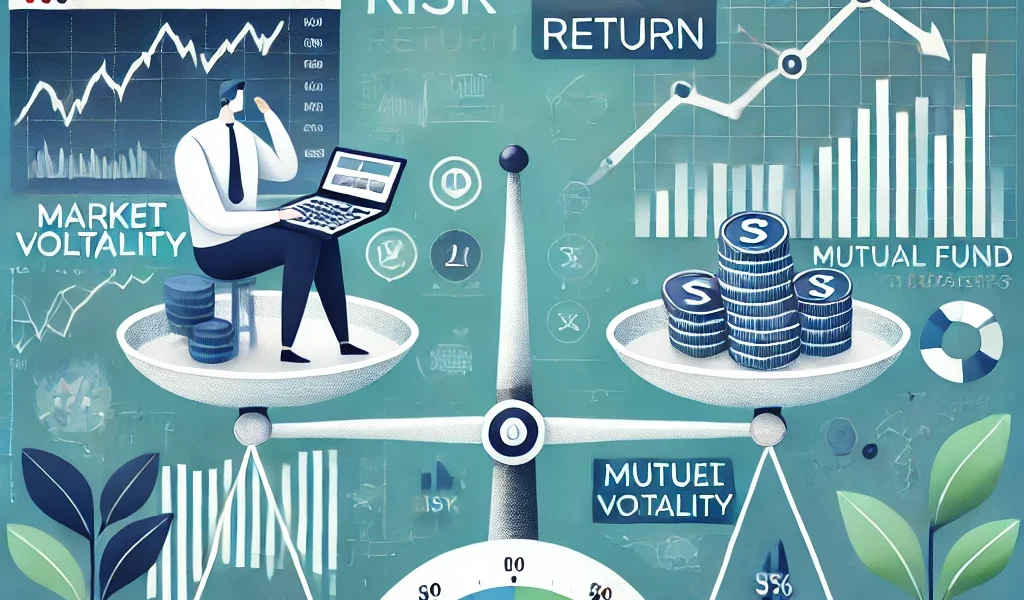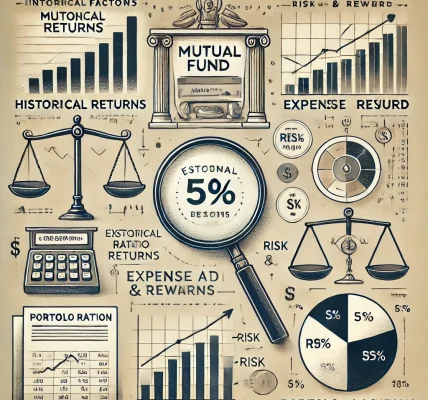Introduction
Market volatility is a natural aspect of investing, but it can significantly influence mutual fund returns. Investors often wonder how fluctuations in stock prices, economic shifts, and global events impact their mutual fund investments. Understanding market volatility and its effects on mutual funds can help investors make informed decisions and minimize risks. In this article, we will explore how market volatility affects mutual fund returns and what investors can do to navigate uncertain market conditions.
Understanding Market Volatility
Market volatility refers to the rate at which the price of securities fluctuates over a given period. It is often measured using indicators such as the Volatility Index (VIX), which gauges investor sentiment and expected future price fluctuations. Several factors contribute to market volatility, including:
- Economic Data Releases: Reports on GDP, inflation, employment rates, and consumer spending can cause market fluctuations.
- Global Events: Political instability, natural disasters, and pandemics can create market uncertainty.
- Interest Rate Changes: Decisions by central banks, such as the Federal Reserve, to raise or lower interest rates influence stock and bond prices.
- Corporate Earnings Reports: Positive or negative earnings reports from major companies can drive market sentiment.
How Market Volatility Affects Different Types of Mutual Funds
Not all mutual funds respond to market volatility in the same way. The impact largely depends on the type of mutual fund and its underlying assets.
1. Equity Mutual Funds
Equity mutual funds invest in stocks, making them highly susceptible to market volatility. When stock prices drop, the Net Asset Value (NAV) of equity mutual funds declines, and vice versa.
- Large-Cap Funds: Tend to be more stable but can still experience declines during market downturns.
- Mid-Cap & Small-Cap Funds: These funds are more volatile and can see sharp fluctuations in returns.
- Sectoral Funds: Funds focused on specific industries, such as technology or healthcare, can be highly volatile depending on sector performance.
2. Debt Mutual Funds
Debt mutual funds invest in fixed-income securities like bonds. While they are generally less volatile than equity funds, they are not immune to market fluctuations.
- Interest Rate Sensitivity: When interest rates rise, bond prices fall, negatively impacting debt fund returns.
- Credit Risk: Default risks from issuers can cause fluctuations in debt fund NAV.
3. Hybrid Mutual Funds
Hybrid funds, which invest in both equities and debt instruments, provide a balanced approach to market volatility. These funds tend to be less volatile than pure equity funds but more volatile than debt funds.
Strategies to Mitigate Market Volatility’s Impact
Investors can employ several strategies to minimize the impact of market volatility on their mutual fund investments.
1. Rupee Cost Averaging (SIP Investing)
Systematic Investment Plans (SIPs) help investors mitigate the effects of volatility by investing a fixed amount at regular intervals. This approach allows investors to buy more units when prices are low and fewer units when prices are high, reducing the overall investment cost.
2. Diversification
Holding a mix of different asset classes, such as equities, debt, and gold, can reduce the impact of volatility. Diversification helps balance risk and return across a portfolio.
3. Long-Term Investment Perspective
Market volatility is often a short-term phenomenon. Investors with a long-term perspective tend to benefit as markets recover over time. Staying invested in fundamentally strong mutual funds can yield good returns despite short-term fluctuations.
4. Regular Portfolio Review
Assessing portfolio performance and rebalancing investments based on changing market conditions can help investors stay on track with their financial goals.
The Role of Fund Managers During Volatile Markets
Professional fund managers actively monitor market conditions and adjust portfolios to minimize risks. They may:
- Shift investments from high-risk stocks to more stable ones.
- Increase cash holdings to reduce exposure during uncertain times.
- Hedge risks using financial instruments.
Conclusion
Market volatility is inevitable, but understanding its impact on mutual fund returns can help investors make better decisions. By adopting a disciplined investment approach, diversifying portfolios, and staying invested for the long term, investors can navigate volatility effectively. Instead of fearing market fluctuations, investors should see them as opportunities to build wealth through strategic investing.




